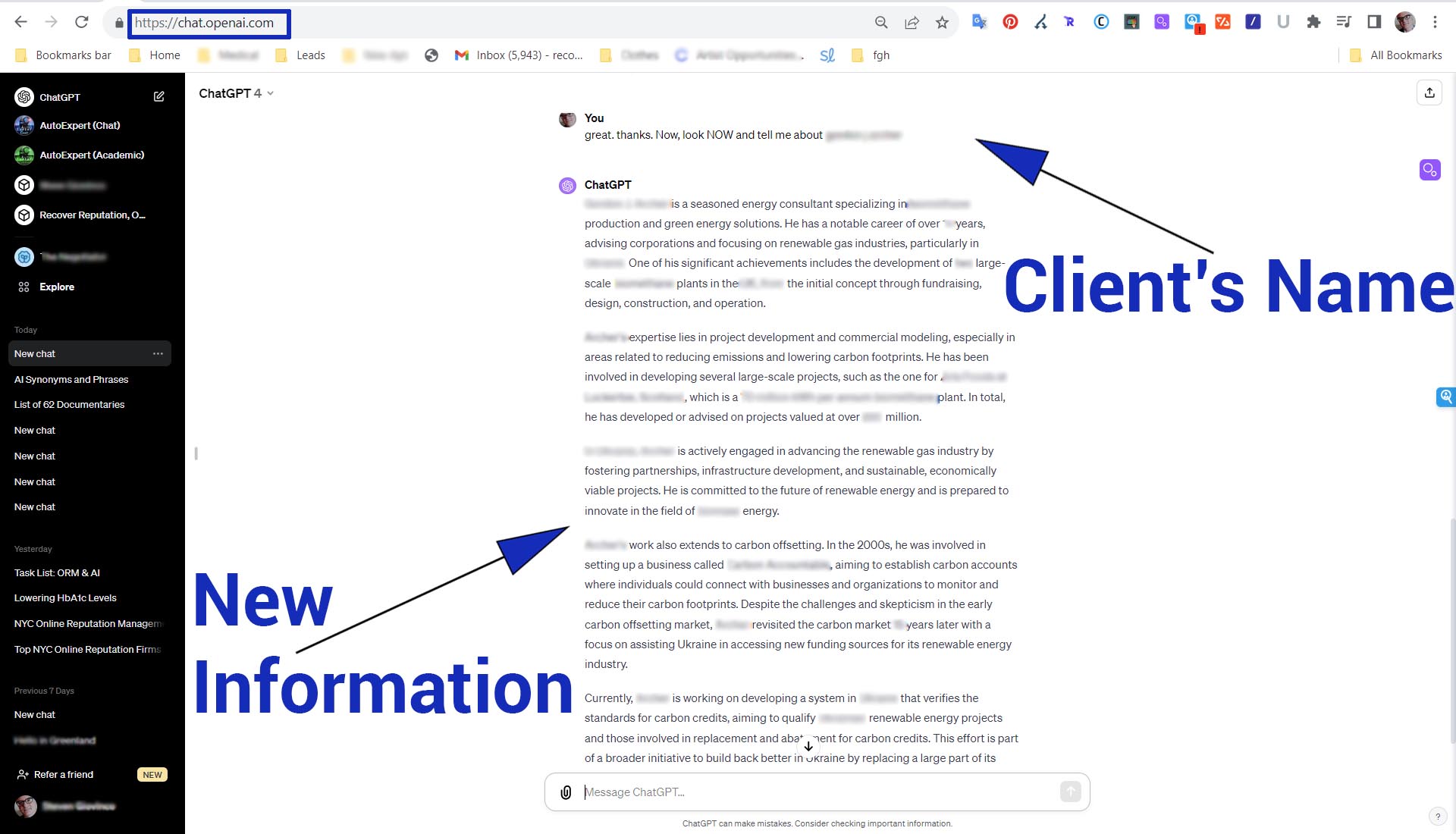Last Updated on August 3, 2023 by Steven W. Giovinco
7 Key Topics to Know the Answer to for Online Reputation Management
I ask a lot of questions when starting a new online reputation management repair project. Beyond “What happened?” and “How can I help”, I pose probing questions for a business or individual client, such as:
- What are their business and personal goals?
- Do they volunteer, help others, serve on charity boards?
- Where did they go to school and what are their interests?
- Have they won awards?
- What should NOT be mentioned?
It might seem somewhat odd and perhaps too personal to delve into someone’s background, future aspirations, and current personal interests–after all, this is about suppressing damaging content from appearing prominently in Google search results.
But knowing as much as possible about a reputation client’s business and personal background is crucial to success. The goal is not to ‘game the system’ by stuffing the web with fluff or false achievements but to have a thorough and true understanding in order to build an authentic online reputation that real people find appealing.
After an initial deep web search where all positive and negative links are carefully identified, I then follow up with in-depth discussions focused around several central categories such as where they worked, lived, went to school, etc.
Here are key categories below to understand.
1. Business and Personal Goals
Do they want to expand their business, sell it, retire, move to Australia? Knowing answers to these questions drives the whole reputation strategy since it informs nearly everything, including the bio statement, key search terms, blog topics, influencers to follow, platforms to be active on, site development, etc.
2. Previous Positions
Knowing all previous jobs (through a CV/resume and follow-up discussion) importantly gives a detailed career summary. This becomes invaluable when crafting a biographical statement for websites or platform profiles. It also fills in gaps in their LinkedIn profile (remember: a complete account with a headshot photo ranks extremely highly by Google, as does being active there) and further fleshes out key search terms.
3. University, College, High School Education
Identifying an online reputation client’s education, college major, interests, years attended, clubs, curriculum–even teachers or famous fellow classmates–is useful for developing a presence on high-ranking alumni sites.
4. Volunteering, Charity
If they are active in a charity, be sure to know the details to be able to share about it. Being on a non-profit board, volunteering, or being active in helping others leads to positive links and is usually easy to promote. It can also result in inclusion in Wikipedia articles, another powerful tool.
5. Hobbies
Seemingly innocuous or unimportant, I always ask what a client likes to do in their spare time. Besides showing they are a genuine, real person which helps foster trust, it can lead to a series of articles, reviews or personal engagement with other like-minded people.
6. Location
Where they live and work engages with other locals in their town or neighborhood and can generate topics for content creation. Reviewing a favorite lunch spot or posting images about a new development in the area helps build a positive online reputation. Reddit, Yelp, Patch and other similar sites are good to be active on.
7. Sensitive Topics to Avoid
Just as important is to know what shouldn’t be highlighted. I always ask many questions to thoroughly understand any sensitive information, bad business relationships, or other issues that can inflame reputation damage and make things worse. Having a list of “no-go” topics, people, positions, careers or old links is extremely important to identify.
Answers Lead to Reputation Strategy
After asking many questions, I carefully compile the resulting information into a spreadsheet for quick access. I then digest this material to develop a customized reputation repair strategy. Acting as the project’s blueprint, this drives actions for the next six to ten months. Missing key information, not realizing that a previous firm or person should NOT be mentioned, or presenting the wrong tone on social media posts could lead to failure.
Example: Lawyer to Contemporary Art in Five Months
For one client, I quickly discovered through initial discussions that they actually had no interest in their legal career and instead wanted to shift towards working with contemporary art. As a result, she gained a new web reputation, suppressed the negative link posted by an ex-partner and found a new position she was passionate about within five months.
Example: Annuities Expert Gains Web Presence and Clients
Or during a conversation with a financial advisor, I learned that he traveled hundreds of miles daily to personally meet with clients, where he would then spend hours learning their needs and discussing his specialty, annuities. This became a central tenet of his online reputation presence driving content and social media sharing. Not only was his reputation repaired, but he also gained new business clients.
So, asking questions is key to developing a successful online reputation solution. I tend to ask a lot–nothing personal, it’s just good business.
Related posts:
- A Further Look at “Is Online Reputation Management Worth The Money?” by Cheryl Lock on Forbes.com
- 25 Free Online Reputation Management Tips and Tools
- How to Use Online Reputation Management to Gain and Retain Clients
- Online Reputation Management Trends for 2022: Zoom, Good Content, NFTs and Metaverse @RecovReputation [Update: Covid]



